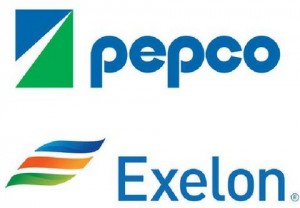
Electric service to an overwhelming majority of Maryland consumers will now be controlled by one company, following the Maryland Public Service Commission’s recent approval of a merger between Exelon Corp., Pepco Holdings, Delmarva Power & Light Co. and Potomac Electric Power Co. (Pepco).
PSC commissioners voted 3-2 May 15 to approve the merger, saying in the opinion, “We find that the proposed merger, as conditioned by this Order, is consistent with the broader public interest, will bring specific and measurable benefits and no harm to ratepayers.”
The decision was conditioned on 46 requirements, including a $100 rate credit for Delmarva and Pepco residential customers and $43.2 million for energy efficiency programs in Prince George’s and Montgomery counties and the Delmarva Maryland service territory. The deal also includes rigorous reliability standards for Delmarva and Pepco which they are required to meet from 2016 through 2020 with attendant penalties for non-compliance. Merging with Exelon will help the smaller companies in that regard, the Commission opined.
“Exelon has demonstrated that it knows how to run electric and gas distribution companies; indeed it is nationally recognized for its standards of excellence,” the Commission stated. “It is in the public interest to capitalize on Exelon’s proven track record in order to accelerate and maximize grid reliability improvements, beyond what could be accomplished absent the merger.”
In a comprehensive 52-page dissenting opinion, however, Commissioners Harold Williams and Anne Hoskins contend the merger poses significant risk to Maryland consumers.
“The merger Application should have been denied,” they stated. “The Public Utilities Article and Commission precedent provide unequivocally that the Commission must deny a merger application that imposes harm – including even the risk of harm – on consumers. The proposed merger fails that standard by causing unmitigated harm in three principal areas: it will undermine competition; it will increase rates, challenging affordability for many consumers; and it will eviscerate economic protections due to a weakened and compromised corporate governance structure.”
Maryland Attorney General Brian E. Frosh echoed those concerns.
“Today is a bad day for consumers, and a great day for monopolies,” Frosh said in a statement. “This merger…would create a company controlling service to 80 percent of Maryland’s electric consumers, with the incentive and ability to stifle competition and suppress innovation. Ratepayers will be paying the nearly $1 billion price-tag for improving electric system reliability for decades to come.
“The Office of the Attorney General, which offered substantial evidence on the nature and scope of these harms,” he added, “is deeply troubled by this decision and is exploring all options to protect the interests of Maryland consumers.”


